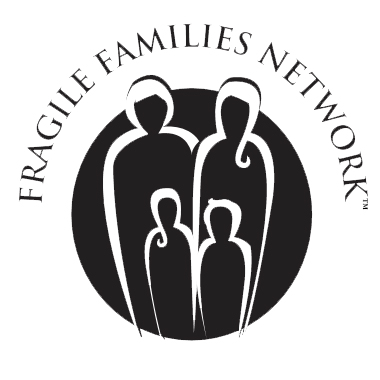Enhancing Support for Grandfamilies: The Importance of Training Professionals for Effective Engagement

Grandfamilies, where grandparents or other older relatives assume primary caregiving roles for children, present unique dynamics and challenges that require specialized support. By training professionals to work effectively with grandfamilies, we can significantly improve access to supportive services, promote family resilience, and ensure holistic care for both caregivers and children. This article explores the importance of professional training in this context, the benefits it brings, and the essential components of an effective training program.
The Importance of Professional Training
Grandfamilies often face a complex set of challenges that include legal issues, financial strain, health concerns, and emotional stress. Professionals across various sectors—such as social services, healthcare, education, and legal aid—play crucial roles in addressing these challenges. Training these professionals to understand and respond effectively to the specific needs of grandfamilies is essential for several reasons:
- Enhanced Service Delivery:
- Tailored Support: Training enables professionals to provide services tailored to the unique circumstances of grandfamilies. This includes understanding the legal and financial intricacies, as well as the emotional and psychological needs of both caregivers and children.
- Resource Navigation: Skilled professionals can guide grandfamilies through the maze of available resources, ensuring they access the necessary support efficiently and effectively.
- Promoting Family Resilience:
- Building Strengths: Professional support can help grandfamilies build on their inherent strengths, fostering resilience and adaptability in the face of challenges.
- Preventing Burnout: By offering appropriate guidance and resources, professionals can help prevent caregiver burnout and promote the well-being of all family members.
- Holistic Care:
- Integrated Services: Training promotes a holistic approach to care, ensuring that professionals consider the physical, emotional, social, and educational needs of both caregivers and children.
- Collaborative Approach: Trained professionals are better equipped to work collaboratively across disciplines, providing comprehensive support that addresses all aspects of grandfamily life.
Benefits of Training Professionals
The benefits of training professionals to work with grandfamilies are far-reaching and impact both the families and the service providers:
- Improved Outcomes for Children:
- Emotional and Psychological Support: Trained professionals can offer targeted support to children, helping them navigate the emotional challenges associated with their living arrangements.
- Educational Success: Professionals in education can better support the academic needs of children in grandfamilies, ensuring they have the resources and encouragement to succeed in school.
- Enhanced Caregiver Support:
- Legal and Financial Assistance: Legal and financial professionals can provide essential guidance to caregivers, helping them secure necessary guardianship or financial aid.
- Health and Well-being: Healthcare providers can offer specialized care that addresses the physical and mental health needs of older caregivers, as well as the children they care for.
- Effective Resource Utilization:
- Efficient Service Access: Well-trained professionals can streamline access to services, reducing the time and effort grandfamilies spend navigating complex systems.
- Empowered Families: Knowledgeable professionals empower grandfamilies by providing them with the information and tools they need to advocate for themselves and make informed decisions.
Components of an Effective Training Program
Developing a comprehensive training program for professionals working with grandfamilies involves several key components:
- Understanding Grandfamilies:
- Family Dynamics: Training should cover the unique dynamics of grandfamilies, including the roles and relationships within these households.
- Cultural Competency: Professionals should be trained to understand and respect the diverse cultural backgrounds and practices of grandfamilies.
- Legal and Financial Knowledge:
- Guardianship and Custody: Training should include information on the legal processes involved in obtaining guardianship or custody, as well as the rights of grandfamilies.
- Financial Support: Professionals should be knowledgeable about financial assistance programs and resources available to grandfamilies, including subsidies, grants, and tax benefits.
- Health and Well-being:
- Healthcare Needs: Training should address the specific health needs of older caregivers and the children they care for, including access to healthcare services and managing chronic conditions.
- Mental Health: Professionals should be equipped to provide or refer for mental health support, recognizing the emotional and psychological challenges faced by grandfamilies.
- Educational Support:
- Academic Advocacy: Training should include strategies for supporting the educational needs of children in grandfamilies, including school advocacy and tutoring resources.
- Developmental Understanding: Professionals should be trained to recognize and address the developmental milestones and potential challenges children in grandfamilies may face.
- Communication and Collaboration:
- Interdisciplinary Collaboration: Effective training should promote collaboration across disciplines, ensuring a coordinated approach to supporting grandfamilies.
- Effective Communication: Training should emphasize the importance of clear, compassionate communication with grandfamilies, fostering trust and understanding.
Training professionals to work effectively with grandfamilies is crucial for improving access to supportive services, promoting family resilience, and ensuring holistic care for both caregivers and children. By developing comprehensive training programs that address the unique needs of grandfamilies, we can empower professionals to provide the tailored support these families need to thrive. Ultimately, well-trained professionals can make a significant difference in the lives of grandfamilies, fostering stronger, more resilient family units and better outcomes for children.
©2024 Fragile Families NETWORK







